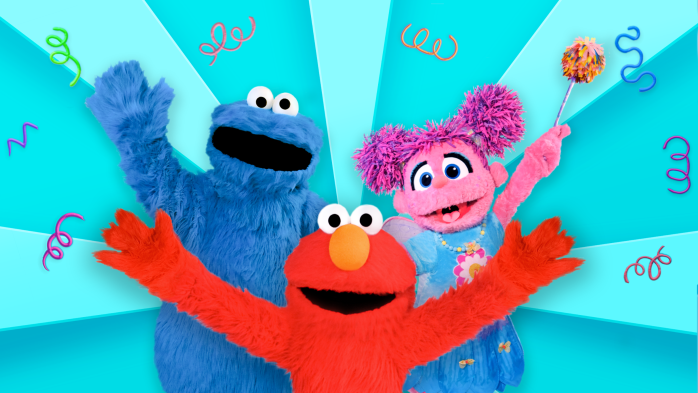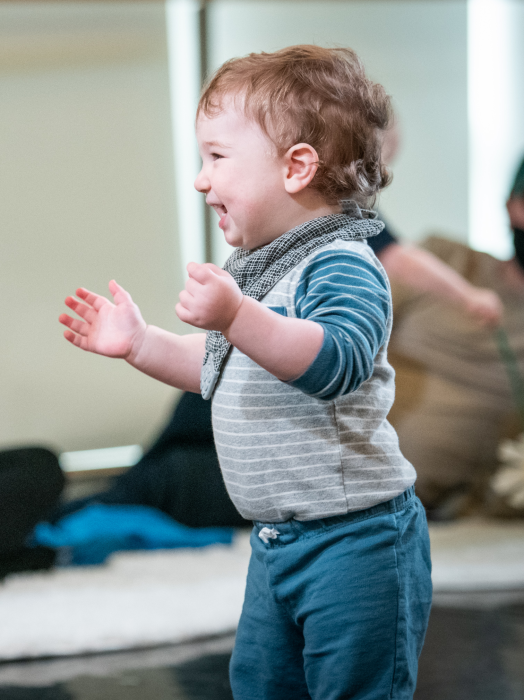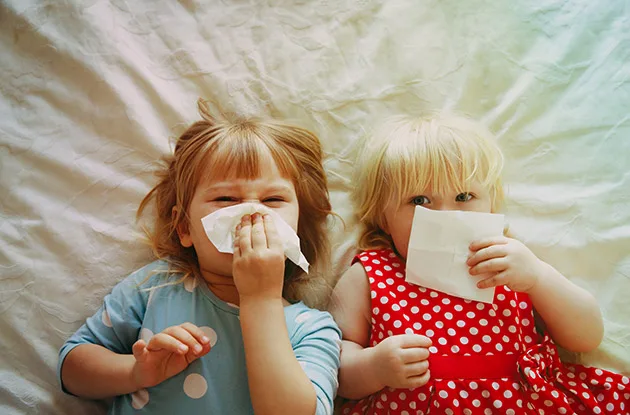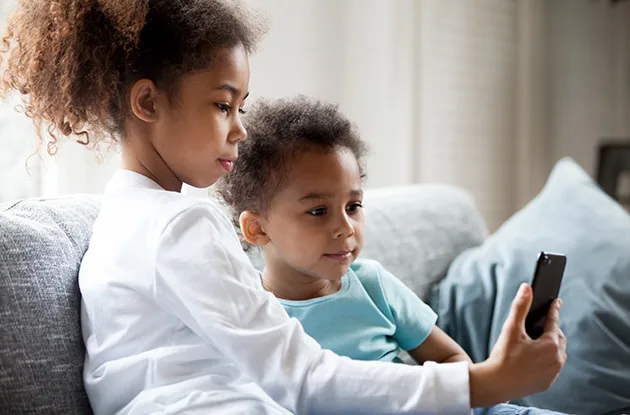It can be tough to tell the difference between food poisoning and a stomach bug, but doctors recommend similar treatment for both illnesses. Read on for tips from local pediatrician Karin Sadow, MD, FAAP, on how to treat food poisoning in kids and when to bring your child to the doctor.
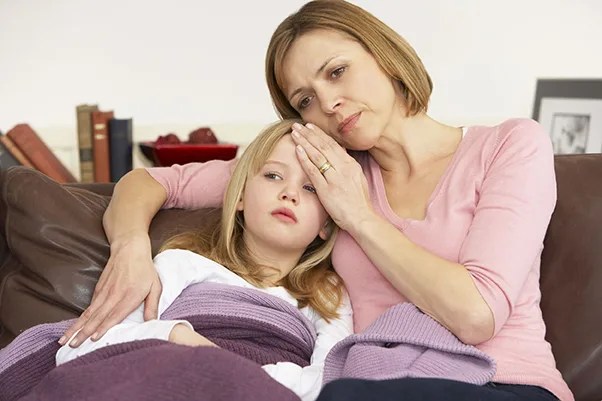
What are the symptoms of food poisoning, and how are they different from a stomach bug?
The symptoms of food poisoning are very similar to symptoms of viral or bacterial gastroenteritis, or what most people call a stomach bug. They can include nausea, vomiting, diarrhea, abdominal pain or cramps, and sometimes a fever. It can be hard to distinguish food poisoning from a stomach virus, but sometimes history can help you figure it out. Think back to the last 24 hours or so, and if many people who ate the same food get symptoms at the same time, it might be food poisoning.
What treatment do you recommend for food poisoning?
The good news is that food poisoning is usually mild. Treatment is similar to a stomach bug and is supportive care at home. The most important thing is to make sure the child is hydrated. The child should be getting very small amounts of liquids in frequent intervals. We recommend non-fruity juices and to stay away from dairy. Start with water. For babies, Pedialyte [or a similar brand] is great. For older kids who don’t like the taste of Pedialyte, we recommend starting them with ice pops or ice chips and then giving them small amounts of watered-down juice or Gatorade. Water is best at the beginning of the illness, but after a day or so your child will need something with electrolytes.
It’s also important to keep the fever down. We recommend Tylenol versus Motrin in this case because ipubrofen can upset the stomach.
Stick to bland and starchy foods, like pretzels. Stay away from spicy foods, dairy, fruits, and vegetables. Fruits are sugary and may go right through them, and vegetables have fiber, which will make them go more. But liquids are the most important things—it’s fine if the child isn’t eating, as long as they’re drinking and staying hydrated.
We don’t recommend Pepto Bismol or other anti-diarrheal agents. The feeling is that whatever is in there needs to get out—if the child isn’t able to get it out of their system, it may prolong the illness and make things worse.
Take precaution and make sure the child practices good hand washing, so they don’t spread anything to the rest of the family. Parents, too, should be conscientious about hand washing. No sharing drinks, pacifiers, or sippy cups.
When should I bring my child to the doctor?
If symptoms don’t improve or get worse, or if you notice blood in the child’s vomit or diarrhea, the child should be examined. If the child is under 12 months old, have them checked after 24 hours. If they are over 12 months old, I would wait a day and a half to two days, depending on the age of the child. During that time, parents can be in touch with their pediatrician over the phone to let them know what’s going on and ask if they have any treatments to suggest.
If a child were to come in, we may give them medication to stop the nausea and vomiting, and we would rehydrate them. In the worst-case scenario, we would give the child IV fluids.
Karin Sadow, MD, FAAP, is the regional medical director for PM Pediatrics (several locations in the NYC area; pmpediatrics.com) and director of PM Pediatrics in Bayside and Mamaroneck, NY. Dr. Sadow is board-certified in pediatrics and pediatric emergency medicine. She received her medical degree from Cornell University Medical College and her Bachelor of Arts from Cornell University.












